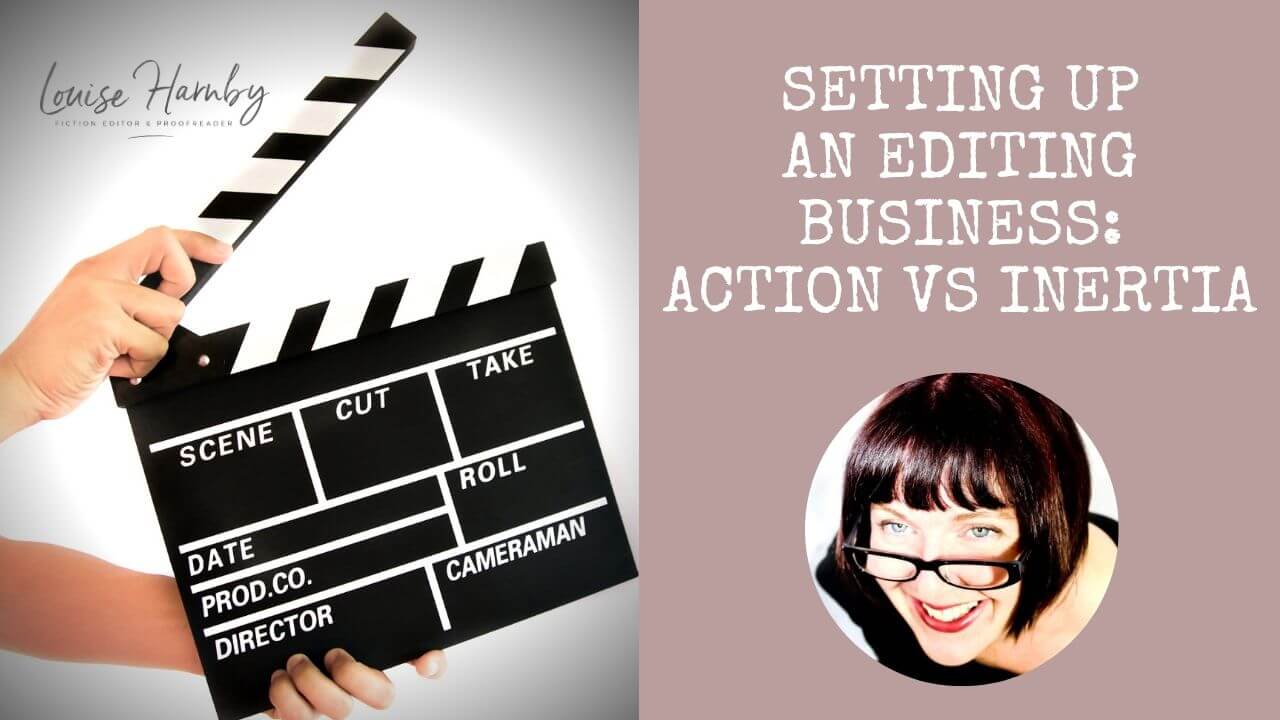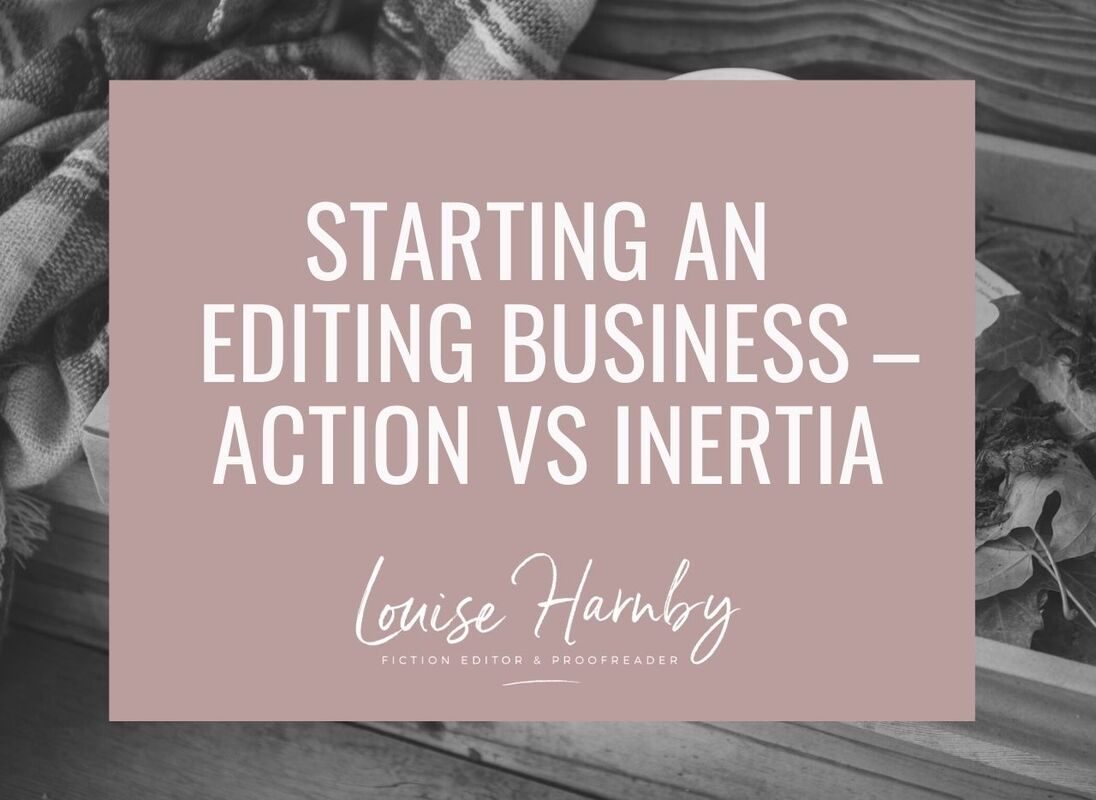|
When starting an editing or proofreading business, it’s important to ask questions and seek advice about the big picture. The key is to not get stuck in a position where we’re incapable of moving forward without seeking validation about the detail.
The thought of taking on all the responsibilities that come with owning and running a proofreading or editing business can be daunting to the new entrant to the field, and to someone who’s technically experienced but who lacks confidence. One of two problems can arise:
This article focuses on the second problem. If you’re a new editorial business owner and need advice on editorial business planning, a list of valuable starting-out resources is provided at the end of the article. Why working for yourself is different Many people come to editorial freelancing after years of successfully working for other businesses. When we are employees, someone else takes care of actually owning and running the business in which we work. I was like that – I was one cog in a large engine. My cog was an important part of the business’s machinery but I only had to worry about me and the bits of my cog that touched the cogs nearby. Someone else owned the engine and worried about how it worked as a whole. Then I set up my own business and I was in charge. I had to make the whole engine run smoothly. Taking charge of the whole thing meant acknowledging 4 truths about owing my own business. 4 truths about editorial business ownership
Business owners take ownership of their businesses … It’s important to ask questions and seek advice about the big picture. The key is to not get stuck in a position where we’re incapable of moving forward without seeking validation about the detail. If I ask 50 colleagues how many pages a website should have I will end up with 50 personal answers. Some of the information I glean from 50 people will overlap but some of it won’t. There won’t be consensus. An inability to make your own decisions, based on your business model and your client's needs, can paralyse you. Paralysis means you’re not in a state of mind where you’re making the final decisions about your business, but hoping instead that someone else will do it for you. That’s potentially disastrous because other people’s decisions are based on their business models, their brand identities, and their clients’ needs. You’re the best person to make the detailed decisions about your business precisely because it’s your business, and your business serves your clients. A business owner, by definition, needs to take ownership, and that means finding the courage to act. Effective advice-seeking vs inertia-inducing thinking … Here are 2 short case studies that demonstrate the difference between effective advice-seeking and inertia-inducing thinking. These are fictional but are based on conversations that I’ve had with real new starters.
Effective advice-seeking
Ali has decided to set up a proofreading business. Let’s assume he’s completed high-quality training, and followed through with a mentoring program. In the course of his business planning he's recognized the value of having a website that can operate as his shop front. In the process of building the website he reaches out to editorial colleagues whom he’s met via his national editorial society and online editorial forums. He asks them about their experiences of website building and the choices they’ve made:
Ali’s colleagues provide a range of responses.
Overall, the answers to Ali’s questions supply him with insights into his colleagues’ experiences. And although the decisions he makes are influenced by these experiences, his final choices need to be based on his business requirements. These might be the same, similar or different to any one of the colleagues who contributed to the discussion. Inertia-inducing thinking Josh, too, has set up a proofreading business. Like Ali, he’s completed the requisite training and believes he has the technical know-how to provide a high-quality service. Josh is seeking similar guidance to Ali, but he frames his questions differently and in a way that could lead to inertia.
The answers to Josh’s questions are just more questions because:
Because Josh’s questions focus on the detail of his business requirements, which are known only to him, he doesn’t receive any definitive answers. As a result, he is paralysed by indecision. While Ali’s website is now live, and operating as a shop front that he can link to via a number of other online platforms (e.g., Facebook, Twitter, Yell, and several specialist editorial directories), Josh is still digitally undiscoverable because he’s waiting for other people to make the decisions for him, decisions that are based on a business that isn’t theirs. Too many cooks … Even a well-asked question that generates lots of responses can be problematic for the new entrant to the field because they don't have enough experience to evaluate the usefulness of the responses. In Ali’s case, 15 colleagues could advise having a separate blog, and 15 could advise attaching a blog to his business website. But how does he work out which is the best approach for his editorial business? Professional networks are fabulous resources, often rich in content, but we need to recognize that the responses we receive to well-asked questions are still dependent on who’s online that day, who bothers to join in the discussion, and what their particular experiences are. Sometimes there are too many cooks in the kitchen; sometimes the best cooks aren’t even in the kitchen. This can lead to confusion rather than clarity. If you’re a new entrant to the field who’s asking lots of good questions but feels overwhelmed by the diverse opinions on offer, consider consulting a business coach or mentor who can spend time focusing specifically on your business requirements and help you sift through the all the advice you’ve received. There’s no one true way to furnish a house … As the two examples above demonstrate, there’s no single way of building and designing an effective website. When we look at various successful editorial professionals’ websites, we see that there are a hundred different ways to do it. None of these is right or wrong; they’re just different ways that people choose to express the information they want to communicate to a client base. We each have to work out what we want to say and decide whether the information looks appealing, is easily navigable for our readers, and communicates a clear message that says we can provide solutions to our clients’ problems. In Josh’s case, it’s not about what I think or like – it’s about what what Josh believes his clients will think and like. This applies to all aspects of editorial business ownership. The editorial business is like a house. More established editorial pros can give us sensible advice on how to locate a plot, dig the foundations, construct the walls, and lay on a roof to prevent us getting wet during rainy days, but only we can furnish our individual houses in a way that suits our financial requirements, our particular skills, our backgrounds, and our clients. Seek advice by all means, but don’t wait for others to make decisions about the detail of your business. Research, ask, learn; consult a business coach/mentor if you’re struggling to clarify your thinking. Then place information within the framework of your own editorial business needs, and act.
Louise Harnby is a line editor, copyeditor and proofreader who specializes in working with crime, mystery, suspense and thriller writers.
She is an Advanced Professional Member of the Chartered Institute of Editing and Proofreading (CIEP), a member of ACES, a Partner Member of The Alliance of Independent Authors (ALLi), and co-hosts The Editing Podcast. Visit her business website at Louise Harnby | Fiction Editor & Proofreader, say hello on Twitter at @LouiseHarnby, connect via Facebook and LinkedIn, and check out her books and courses.
3 Comments
1/6/2019 07:30:38 pm
Smart stuff and helpful to me at this stage. Cheers and thanks for your insight.
Reply
Louise Harnby
1/6/2019 10:15:42 pm
Cheers, George! Glad it helped.
Reply
Jo Barr
28/10/2022 08:52:10 am
Hi Louise. I love your house furnishing analogy. In fact, I'm a big fan of The Editing Podcast and your (and Denise's) clear explanations of all aspects of the industry. This article is both insightful and reassuring. Thank you so much. Jo. Jo Barr Copy Editing Services
Reply
Leave a Reply. |
BLOG ALERTSIf you'd like me to email you when a new blog post is available, sign up for blog alerts!
TESTIMONIALSDare Rogers'Louise uses her expertise to hone a story until it's razor sharp, while still allowing the author’s voice to remain dominant.'Jeff Carson'I wholeheartedly recommend her services ... Just don’t hire her when I need her.'J B Turner'Sincere thanks for a beautiful and elegant piece of work. First class.'Ayshe Gemedzhy'What makes her stand out and shine is her ability to immerse herself in your story.'Salt Publishing'A million thanks – your mark-up is perfect, as always.'CATEGORIES
All
ARCHIVES
July 2024
|
|
|
|

















 RSS Feed
RSS Feed





